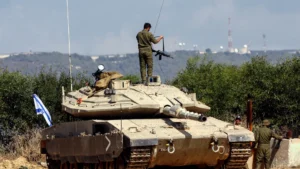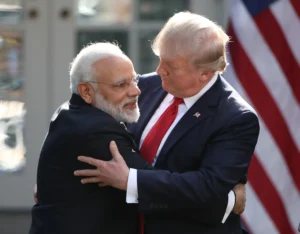
Israel’s Ground Operations in Lebanon: A New Phase in Regional Conflict

As tensions escalate in the Middle East, Israel has launched significant ground operations in southern Lebanon against Hezbollah, marking a pivotal moment in the ongoing conflict. Following the assassination of Hezbollah leader Hassan Nasrallah and a series of airstrikes, Israel’s military actions have intensified, raising concerns about a broader regional confrontation.
Background of the Conflict

The current escalation can be traced back to a series of cross-border skirmishes that have plagued the Israel-Lebanon border for years. However, the situation dramatically intensified after Israel’s airstrike that killed Nasrallah, a key figure who had led Hezbollah for over three decades. His death has left the organization reeling and has prompted Israel to capitalize on what it perceives as a moment of vulnerability for Hezbollah.In recent weeks, Israeli forces have conducted extensive airstrikes targeting Hezbollah positions across Lebanon, claiming to have eliminated numerous high-ranking commanders and destroyed significant military infrastructure. The Israeli Defense Forces (IDF) describe these operations as necessary measures to ensure the safety of Israeli citizens living near the border.
The Ground Offensive

On October 1, 2024, Israel initiated targeted ground raids into southern Lebanon, supported by artillery and aerial bombardments. These operations are characterized as “limited incursions” aimed at dismantling Hezbollah’s capabilities while avoiding a prolonged engagement reminiscent of past conflicts, such as the 1982 invasion that led to an 18-year occupation. However, there are concerns that this could spiral into a more extensive military campaign if not carefully managed.Israeli Prime Minister Benjamin Netanyahu has emphasized that the operations are crucial for national security, asserting that no part of the Middle East is beyond Israel’s reach. This assertive stance comes despite calls from international leaders, including U.S. President Joe Biden, for a ceasefire and de-escalation of hostilities .
Humanitarian Impact

The ongoing conflict has had devastating humanitarian consequences. Reports indicate that over 1,000 people have been killed in Lebanon due to Israeli strikes, with approximately one million people displaced from their homes. The Lebanese health ministry has described the situation as dire, with hospitals overwhelmed by casualties and urgent needs for aid .As Israeli forces press forward with their operations, they face criticism for the high civilian toll and allegations of targeting residential areas under the guise of attacking military positions. While Israel maintains that it is targeting Hezbollah facilities, many residents report significant destruction and loss of life among civilians.
International Reactions

The international community has responded with concern regarding the escalating violence. The United Nations has expressed deep apprehension about the potential for wider conflict in the region. Diplomatic efforts are underway to mediate between Israel and Hezbollah to prevent further escalation, but these initiatives face significant challenges given the current hostilities.U.S. officials have urged restraint from both sides but have acknowledged that Israel’s strategic calculations may lead it to continue its military operations despite international pressure. The Biden administration’s calls for a ceasefire highlight a growing rift between U.S. diplomatic efforts and Israeli military actions .
Conclusion
Israel’s ground operations in Lebanon represent a significant shift in the dynamics of regional conflict and raise critical questions about the future stability of both countries and their neighbors. As military actions intensify and humanitarian crises deepen, finding a path toward peace becomes increasingly urgent.The situation remains fluid, with potential implications not only for Israel and Lebanon but also for broader Middle Eastern geopolitics. As both sides brace for what could be a protracted conflict, the need for diplomatic engagement and humanitarian assistance is more pressing than ever. The unfolding events will undoubtedly shape the landscape of Middle Eastern relations for years to come.
Discover more from
Subscribe to get the latest posts sent to your email.







